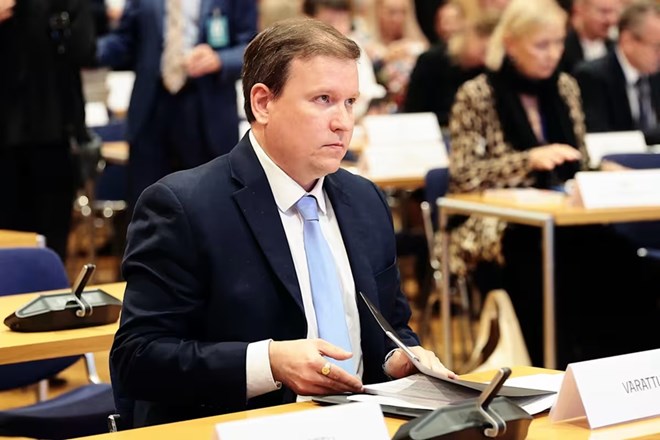
Friday August 29, 2025

Finnish Minister of Development Ville Tavio. CREDIT: Mikko Ahmajärvi / Yle
HELSINKI, Finland (HOL) — Finland will keep its development program for Somalia suspended until Mogadishu accepts more deportees, said Development Minister Ville Tavio, adding aid will resume only after “concrete progress” on returns.
“I think it is fair that an administration that does not welcome its citizens does not receive development funding either,” Tavio said.
Finland froze its Somalia Country Programme in November 2024, halting new development decisions while allowing ongoing projects to finish. The suspension does not cover humanitarian aid, grants to non-governmental organizations or private-sector support. The Foreign Ministry had planned to allocate 8 million to 9 million euros a year to Somalia beginning this year, but no replacement package has been announced.
Public broadcaster Yle reported Tavio has floated a benchmark of at least 100 Somali nationals accepted back before development funding is restored. He declined to comment on the figure through his assistant. The matter is politically sensitive in Somalia, where officials cite security conditions and reluctance to take back citizens with criminal convictions abroad.
While returns are handled by the Interior Ministry, the governing coalition’s program allows Finland to condition development aid on a partner country’s cooperation with readmission and support for the rules-based international order. Seeking to speed removals, Interior Minister Mari Rantanen visited Mogadishu in January to meet Prime Minister Hamza Abdi Barre and Internal Security Minister Abdullahi Sheikh Ismail. Ismail travelled to Helsinki in late June for follow-up talks. Rantanen said it is “of utmost importance for Finland to establish effective return arrangements with Somalia,” adding cooperation was progressing.
To support implementation, the Foreign Ministry plans a short-term project worth several hundred thousand euros to bolster operations at Somalia’s immigration authority.
Finland’s Somali community numbers about 20,000 people, roughly half in the greater Helsinki area, according to the Finnish Somali League. About two-thirds were born in Finland. Officials say bilateral relations are otherwise good, and the government has signalled the development freeze could be lifted once readmission cooperation improves.
Sweden has also moved aggressively. The government deported eight Somalis this summer and is preparing to remove at least 15 more, most of whom are currently in prison. The policy shift reflects Sweden’s broader effort to enforce some of the toughest immigration rules in decades, backed by the right-wing Sweden Democrats.
Other European states are tightening controls in parallel. Ireland has expanded border checks after asylum seekers, including Somalis, crossed from the United Kingdom to avoid London’s controversial Rwanda plan. France’s Mayotte territory in the Indian Ocean has seen Somali migrants stranded and threatened with deportation as part of its crackdown on irregular migration flows.